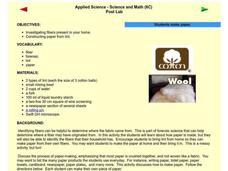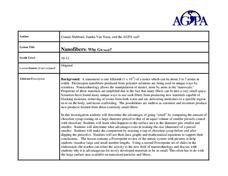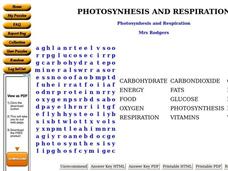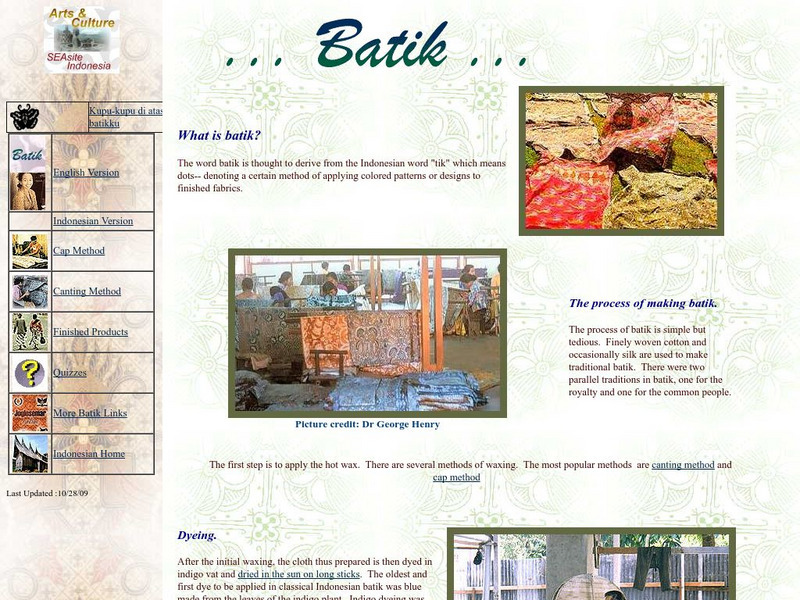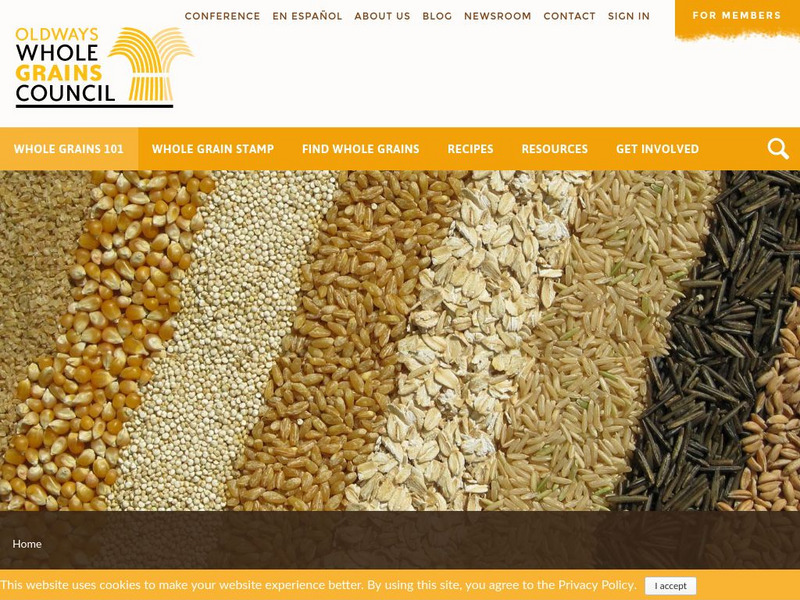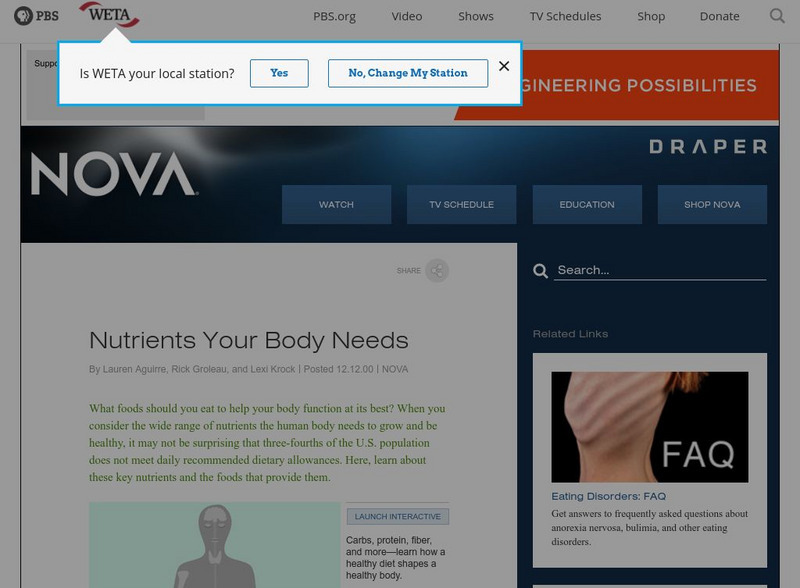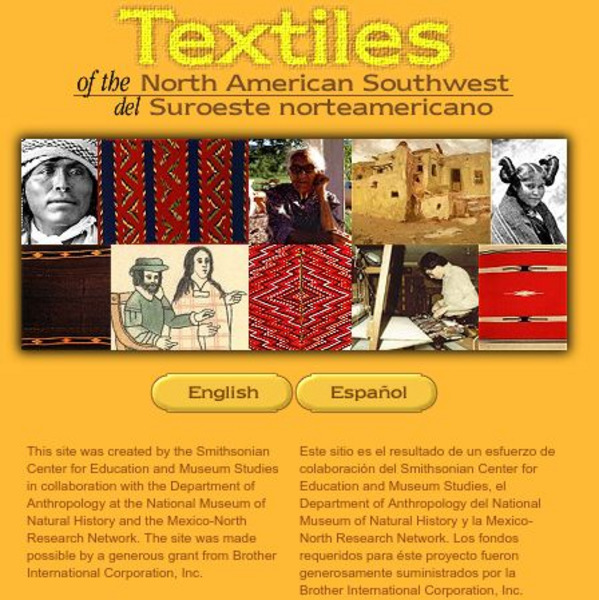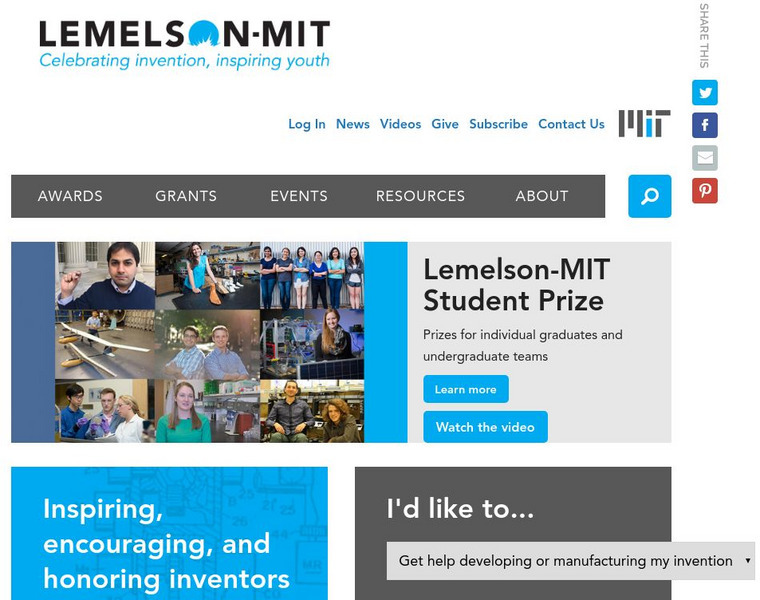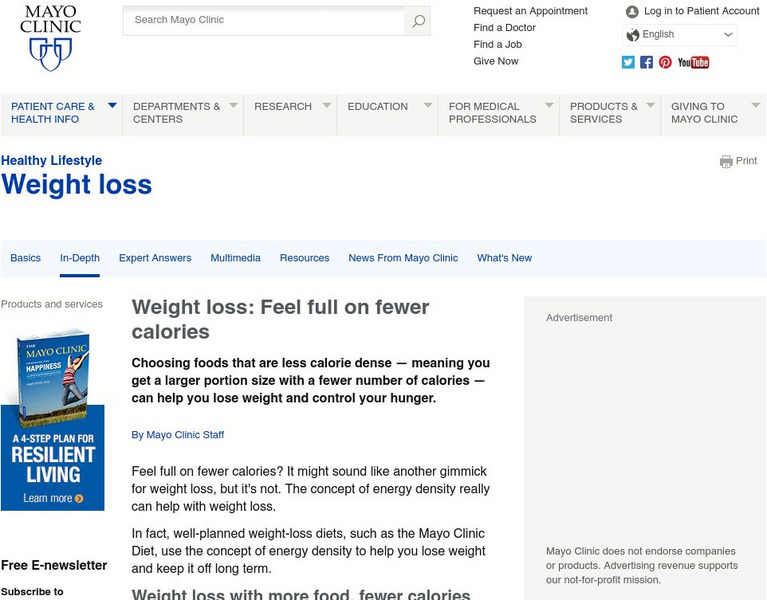Curated OER
Dietary Fiber
Students examine the different types of fiber and their benefits. In this investigative lesson students find good sources of fiber in different foods.
Curated OER
Applied Science - Science and Math Post Lab
Students construct paper. In this applied Science lesson, students create paper using lint. Students investigate the different fibers in their homes.
Curated OER
Fit With Fiber
Sixth graders investigate the nutritional value of different types of cereal. They take a survey of students that ate breakfast and create a circle graph with the results. Students examine the nutritional information on the sides of the...
Curated OER
PICTURE PERFECT PYRAMID
Middle schoolers create a model of the USDA's Food Pyramid Guide, using shoe boxes. They bring an assortment of shoe boxes from home. Students are given a copy of the "Food Guide Pyramid." They wrap boxes for the bread group in white,...
Curated OER
Healthy Eating Habits
This Healthy Eating PowerPoint summarizes what the different parts of food are and some important examples and facts about each.
Curated OER
Nanofibers: Why Go Small?
Students explore the surface ratio of an object. In this surface area to volume lesson students construct a data table, make calculations and create a graph.
Curated OER
Health In Progress - Processed Foods
Middle schoolers compare and contrast processed foods to unprocessed foods. After exploring the differences, they research the health factors, benefits and concerns in both types of food. Discussions include fats, sweeteners, fiber,...
Curated OER
Food Guide Pyramid
Students develop an understanding of the Food Guide Pyramid by creating sample meals and examining whether there is a relationship between how foods are grown and where they fall in the Food Guide Pyramid. They also complete a scavenger...
Curated OER
Non-Nutrients: Fiber and Water
Students discuss how much fiber and water a person needs each day. They use beans soaked in water to show the benefits of water to the human body. They also learn the health benefits to eating healthy.
Curated OER
Dietary Fiber Introduction
Students research fiber and consider its sources, functions and importance to overall health. They sample high-fiber items, complete worksheets and take a quiz on their fiber research.
Curated OER
Photosynthesis and Respiration
In this biology worksheet, students identify and locate various vocabulary terms related to photosynthesis and respiration. There are 15 biology terms located in the word search.
Curated OER
Dietary Fiber Introduction
Students identify fiber from foods, its sources and function in the body. They also the importance of fiber in the diet and good food sources that one can eat. Finally, students discuss water and its importance with eating fiber and...
Curated OER
What does AG have to do with me?
Students practice alphabetizing while categorizing sources of basic agricultural products. They discuss agricultrual products, discover where they are grown and draw a simple agricultural scene on poster board.
Curated OER
Fiber - Adding It To The Diet - Skill Supplement
Students examine and prepare a recipe and state the purpose of each ingredient. They complete a worksheet based on the food pyramid.
Northern Illinois University
Se Asite: Batik
This site describes the process of creating and dying batik fabrics. There are links to specific methods of batik, a quiz, and additional links to related sites.
The Association of the British Pharmaceutical Industry
Abpi: Digestion
A student-paced tutorial where learners read information, answer interactive review activities, and then take a self-checking quiz at the end of the lesson.
Other
Whole Grains Council: Whole Grains 101
Whole grains are an important part of your diet. This article discusses the advantages of whole grains, how you can incorporate them into your meals, and there are even some recipes to try.
PBS
Pbs Nova Teachers: Dying to Be Thin: Body Needs
Find out what the human body needs to function at its best, and why.
Smithsonian Institution
Smithsonian: Textiles of the North American Southwest
This site explores the weaving traditions of the Native American and Hispanic peoples of northern Mexico and the southwestern United States. A gallery of artifacts, timeline, map glossary, and textual descriptions are included. This is a...
Massachusetts Institute of Technology
Mit: Inventor of the Week: Wallace Carothers
This site from the Massachusetts Institute of Technology contains information on Wallace Hume Carothers and his invention of nylon.
Mayo Clinic
Mayo Clinic: Energy Density & Weight Loss:feel Full on Fewer Calories
This article is medium-sized in length and provides great information on the subject. Links are provided for additional information as well.
US Department of Agriculture
Choose My Plate: Why Is It Important to Eat Grains, Especially Whole Grains?
"Why is it important to eat grains, especially whole grains?" This website has the answer. Read about the "health benefits" of eating whole grains and learn about the nutrients found in whole grains.
Mayo Clinic
Mayo Clinic: Heart Healthy Foods
Resource provides great information on the topic of heart healthy foods. The site is fairly in-depth with links scattered throughout for additional information on related subjects.



